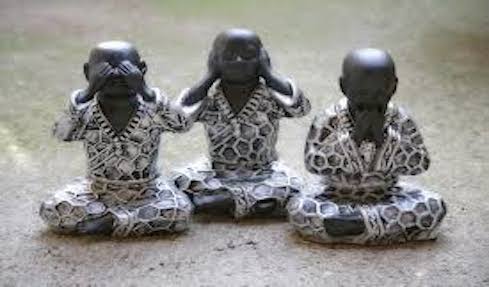The goal in Buddhism is to enter into clarity. In everyday life, the longer we can abide in clarity, the more quickly compassion, love, and faith will grow; afflictions will also diminish gradually until finally Buddhahood is attained.
~ Depicted from Luminous Wisdom Book Series: The Paper Tiger - Suffering is just a Paper Tiger











